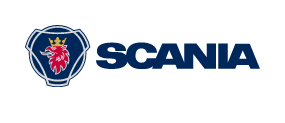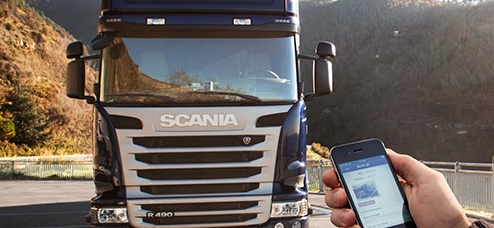 Five years ago, Scania introduced connectivity as standard in the European markets. Today connected customers in more than 50 countries gain access to services in order to follow up and evaluate the performance of their vehicles. In 2015, almost 70,000 connected trucks and buses were added and now the number of connected vehicles is up to 1,70,000.
Five years ago, Scania introduced connectivity as standard in the European markets. Today connected customers in more than 50 countries gain access to services in order to follow up and evaluate the performance of their vehicles. In 2015, almost 70,000 connected trucks and buses were added and now the number of connected vehicles is up to 1,70,000.
“Our customers are increasingly seeing the opportunities presented by connectivity in order to improve the efficiency of their vehicle performance and therefore reduce costs. Interest is growing in line with the extension of our connected services offer, also among bus and coach operators” states Mr. Mattias Lundholm, Head of Scania’s Connected Services and Solutions business unit.
Scania’s investment in connectivity began as far back as the early 2000s, when the first digital Fleet Management services were launched. Back then it was about information obtained from the vehicle’s electronic management systems, which was used to analyse fuel consumption and wear and tear, and for example, how a driver shifted gears, braked and made use of the engine’s speed range. This data formed the basis for the Scania Driver Training service, later supplemented by the Scania Driver Coaching service, which today are key elements in the Ecolution By Scania concept.
Using Ecolution by Scania, the haulier can reduce fuel consumption by between 10 and 15 percent, which for a long-haulage vehicle that drives 2,00,000 km a year, can mean an annual fuel saving of approx.10,000 euro.
Connected workshops
Scania´s service workshops have started using connectivity technology to remotely read vehicle data and diagnose the vehicle in order to reduce downtime in connection with planned workshop visits as well as emergency service along the road.
The next step in the development of communication with the vehicle is service and maintenance, which is based on its specific use and driving style instead of just driving distance, which traditionally applies in the industry.
Scania regards the development of electronic control systems as a core business activity and the information from connected vehicles as a strategic asset.
“The strategy was established during the 1990s and has enabled Scania to launch for instance various systems for encouraging and helping drivers to drive fuel-efficiently and safely,” says Mr. Lundholm.
The industry’s first wearable
In late 2014, the Scania Watch was introduced, which is the truck industry’s first wearable device, a wristwatch with which the driver can remotely read vehicle data but can also obtain information about driving and rest times as well as his or her physical condition. Scania’s development of wearables will gradually evolve and simplify everyday life for the driver both when it comes to work and leisure.
“The Scania Watch is the first example in our development of connected services, which extends far beyond communication with the actual vehicle and its electronic systems. In the future, hauliers and drivers will only need to perform two keystrokes one to unlock their phone or tablet and one to click on a Scania icon, to be able to order anything from time at the workshop to food and other services at the next stop,” concludes Mr. Lundholm.

